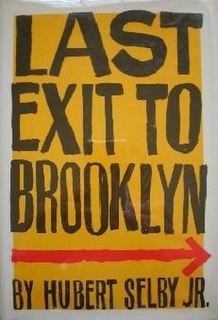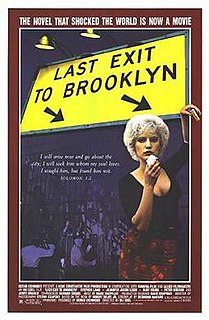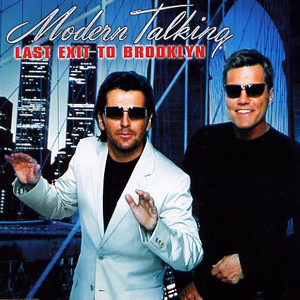Last Exit to Brooklyn is the name of a 1964 novel by Hubert Selby Jr.

Last Exit to Brooklyn is a 1964 novel by American author Hubert Selby Jr. The novel has become a cult classic because of its harsh, uncompromising look at lower class Brooklyn in the 1950s and for its brusque, everyman style of prose.
Last Exit to Brooklyn may also refer to:
- Last Exit to Brooklyn (film) , a 1989 film based on the novel.
- Last Exit to Brooklyn (album) , the soundtrack album to the film.
- Last Exit to Brooklyn (song), a song by Modern Talking from their 2001 album America.

Last Exit to Brooklyn is a 1989 German-British drama film directed by Uli Edel and adapted by Desmond Nakano from Hubert Selby Jr.'s novel of the same title.

Last Exit to Brooklyn is a soundtrack album by British singer-songwriter and guitarist Mark Knopfler, released on 3 October 1989 by Vertigo Records internationally, and by Warner Bros. Records in the United States. The album contains music composed for the 1989 film Last Exit to Brooklyn, produced by Bernd Eichinger and directed by Uli Edel.

Last Exit to Brooklyn is a song by German musical group Modern Talking. It was released in April 2002 as the second single from their tenth studio album America. The single released on May 7, 2001, experienced a moderate success, it spent only five weeks on the German single chart and peaked at only No. 41. "Last Exit to Brooklyn" charted similarly in Austria peaking at No. 44 and No. 94 in Switzerland. The single; however, managed to chart better in Russia, where it peaked at No. 7.
The phrase also appears in the chorus of Gene Pitney's song "Last Chance to Turn Around".

Gene Francis Alan Pitney was an American singer-songwriter, musician, and sound engineer.



